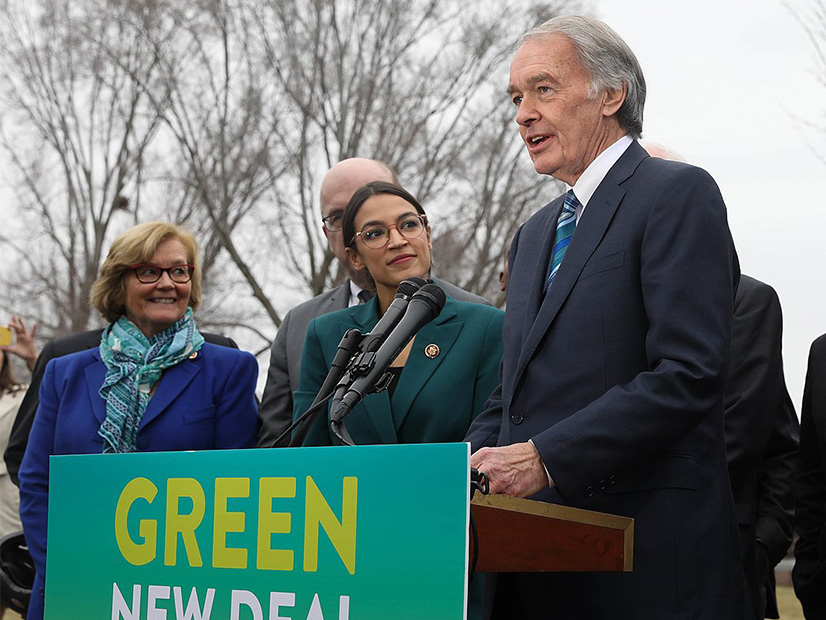President Joe Biden is walking a fine bipartisan line to get an infrastructure deal passed for the country, but some Democrats say they won’t follow along without a complementary piece of legislation that makes a larger investment in tackling the climate crisis.
That legislation could take the form of a reconciliation bill, which would ignite a special process that expedites tax, spending and debt legislation, avoiding the kind of hold-ups impinging the infrastructure deal.
Budget resolutions can’t be filibustered and set the priorities for a reconciliation bill, which can be passed with a simple majority instead of 60 votes.
“We’re at a turning point here,” Sen. Ed Markey (D-Mass.) said at an OurEnergyPolicy panel discussion on Tuesday. The “planet is running a fever,” and “we have to engage in preventative care.”
Markey and other Democratic leaders are looking to the reconciliation process to find a formula that works for funding programs that address the climate crisis, he said.
But when Biden expressed support for a reconciliation bill as a parallel track to the infrastructure deal, previous Republican backers of the infrastructure package said they would pull their support. It is still unclear whether either option will be successful, but Markey said Tuesday: “No climate, no deal.”
He is calling for $100 billion for spending on the climate crisis, but at minimum there will be $27 million for public and private investment, Markey said.
Along with Rep. Alexandria Ocasio-Cortez (D-N.Y.), Markey is also pushing for funding for a Civilian Climate Corps as part of a reconciliation bill. The civilian corps would operate under Americorps to bring young people in to help ameliorate the climate crisis.
Budget resolutions would also create tax breaks for wind, solar and battery storage projects, while eliminating all tax breaks for oil, coal and gas.
Markey said that what is making climate rise to the top of the issue list in Washington is the movement of young people, such as the Sunrise Movement, speaking out and pushing for immediate change.
“It’s what changed the dynamic of where we are right now,” Markey said.



